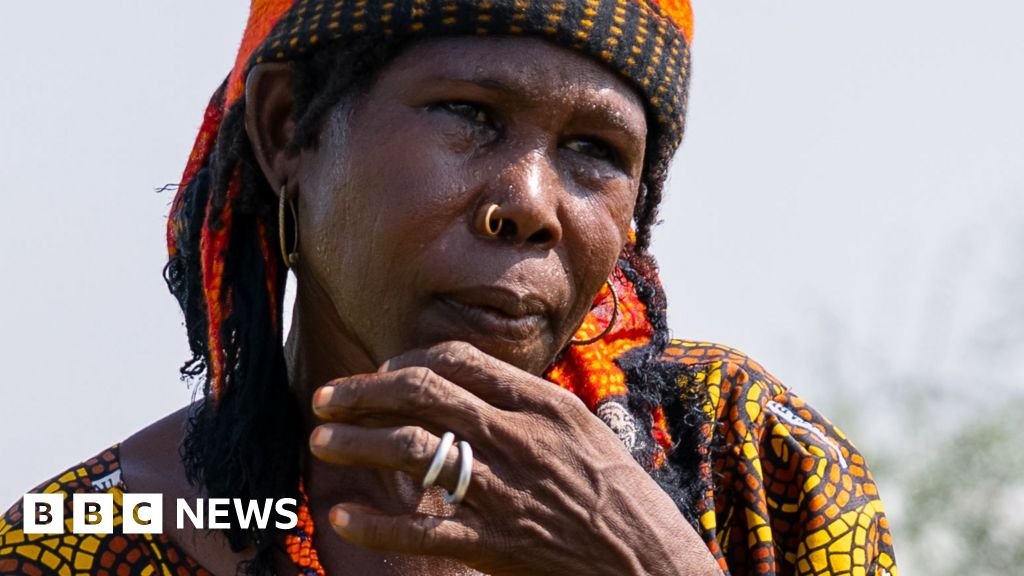
‘We fear for our lives’

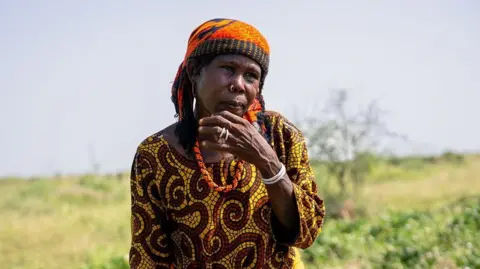 Ayo Bello / BBC
Ayo Bello / BBCAs women water vegetables and pull weeds in a rural corner of north-eastern Nigeria, men in uniform stand guard with large rifles.
They are Agro Rangers – a special security unit set up by the government to protect farmers from militants from jihadist groups Boko Haram and the Islamic State West Africa Province (Iswap), who can attack farms in Borno state at any time.
“There is fear – we fear for our souls,” Aisha Issa, 50, tells the BBC as she tends to her crops.
Since it is not safe for her family to stay in the house they fled 11 years ago, she and many others like her are driven to Dalwa village early in the morning from the pick-up point in Maiduguri, the state capital. It is less than an hour away.
She now lives in a makeshift house and says growing soybeans and maize is the only way to feed her family.
“Even if Rangers don’t come, we’ll take the risk and come.”
Here, the army marked out an expanse of land surrounded by clearly defined trenches, where people could plant their crops. If they step beyond that border, Boko Haram poses a huge threat.
“We are hearing that people are being kidnapped,” says 42-year-old Mustafa Musa. “Some have been killed. That’s why I’m scared and I don’t want to come without security protection.”
The father of 10 says he left his village, Konduga, 13 years ago and will not settle again until the government brings lasting security.
In the 15 years since the start of an Islamist insurgency in north-eastern Nigeria, thousands have died and millions have been driven from their homes.
According to research by the Armed Conflict Location and Event Data (Acled) monitoring group, the number of people killed in targeted attacks on farmers this year will double from 2024.
Yet the governor of Borno state is accelerating work to reintegrate displaced people from the camps on the land – as part of their stabilization program and to combat disruptions in food production.

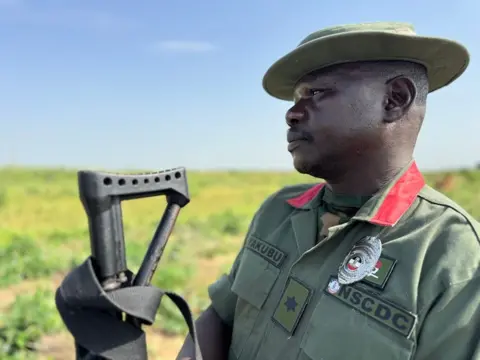 Ayo Bello / BBC
Ayo Bello / BBCNearly four million people are facing food insecurity in Nigeria’s northeast conflict zone, the UN warns. But some aid agencies say the move to relocate farmers has been too fast to boost agriculture.
The International Crisis Group, a non-profit organization focused on resolving deadly conflicts, says the policy is putting internally displaced people at risk – highlighting that militant groups exploit farmers in areas they control to raise funds for their violent extremism.
Kidnapped along with nine other farmers and still very scared after the ordeal, Abba Mustafa Muhammad has seen firsthand what happens when victims don’t pay.
“One was killed because he couldn’t pay the ransom. His family couldn’t meet the deadline,” says Mr Mohammed. “He was killed and thrown away. They asked the family to come and take away the body.”
Being confined to the dense forest for three days was “unbearable”, he says. “We were often hungry and had diarrhea from the little meals they prepared. There was no clean water to drink.”
The father-of-three tells the BBC he is too scared to return to subsistence farming because “the rebels are still hiding. Just yesterday they kidnapped more than 10 people”.

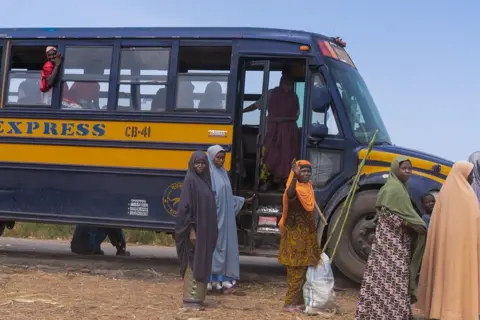 Ayo Bello / BBC
Ayo Bello / BBCDespite such stories, Mohammed Hassan Agalama, the commander who heads the Agro Rangers program in Borno, insists that the Guards deter militants from carrying out violent attacks.
CDT Agalama, who operates under the Nigeria Security and Civil Defense Corps (NSCDC), says, “We have not encountered more terrorists coming to attack farmers because they know we are fully on the ground during the farming season.”
NSCDC spokesman James Bulus argued that the government was making gains in the fight against the insurgents, telling the BBC: “The only harvest to tell is that normalcy has returned and farmers are going about their normal business in the fields.”
However, he admitted that resources are inadequate.
Agro Rangers is a micro-project and not a long-term solution to widespread regional insecurity.
“We cannot be everywhere. We are not souls. Can 600 armed Agro Rangers cover the entire farm in Maiduguri? No.”
For this reason, the federal government of Nigeria says it plans to expand the Agro Rangers scheme.
Acled’s senior Africa analyst Ladd Serwat says this year has seen an increase in the number of civilian deaths reported from targeted attacks on farmers by armed groups.
Moreover, killings by Boko Haram and ISWAP in the first half of 2025 reached a five-year high.

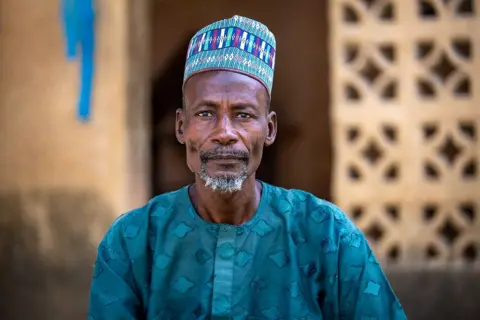 Ayo Bello / BBC
Ayo Bello / BBCIn downtown Maiduguri, a group of farmers gathered at the home of Adam Goni, president of the Borno branch of the National Association of Sorghum Growers, Processors and Marketers.
Men sit on mats under the broad branches of a tree, while two women sit on mats in the shade of a nearby veranda, as goats and chickens roam the compound.
The lives of entire groups are irrevocably changed by violence.
Among them is Baba Modu, whose 30-year-old nephew was shot dead by Boko Haram on his farm.
“That bothers me a lot,” he says. “They kill people like ants without remorse. The killings we have experienced are devastating, but this year is the worst. Whenever I go to the farm, the threat of being killed is constant. I don’t have peace of mind even at home – I often sleep with my eyes open, thinking I might be attacked.”
Mr. Modu sometimes sinks into his chair, pausing in deep contemplation. He says the constant insecurity weighs heavily on him and society.
“You can’t go to the farm even if you’re hungry and there’s a shortage of food. When we try, they chase us or kill us. At first they used to demand ransom after kidnapping someone, but now they collect the money and still kill the person they kidnapped.”
Many farmers like Mr. Modu say the militants can outnumber and overpower the Nigerian army when they attack.
“Sometimes even the security personnel run away on seeing the insurgents,” he adds.
On one side of the compound, Mr. Goni tends to the potato patch.
He tells the BBC that he has 10 hectares (24 acres) of land 8 km (5 miles) away ready for harvest, but is afraid to collect his crops.
A neighboring farm owner had been murdered on his land the week before.
“There is no security there. We are taking risks just to go there, because when you go to farm, these Boko Haram people are there,” he says. “If you’re not lucky, they’ll kill you.”
Mr Goni believes the military can do more to end the conflict.
“We are very angry. We are upset with what is happening. If the government is serious, Boko Haram will be finished in Nigeria within a month.”
Meanwhile, NSCDC’s Mr Bulus says the military is addressing the wider conflict.
“Peace is gradual. You can’t do it in a day. It takes many processes.”
But for these farmers, this process has taken a long time. For more than 15 years, insecurity has persisted in every aspect of people’s lives.
The BBC asked the Nigerian military about claims by the farming community that it had not done enough to protect them, but has yet to respond.
More BBC stories about Nigeria:

 Getty Images/BBC
Getty Images/BBC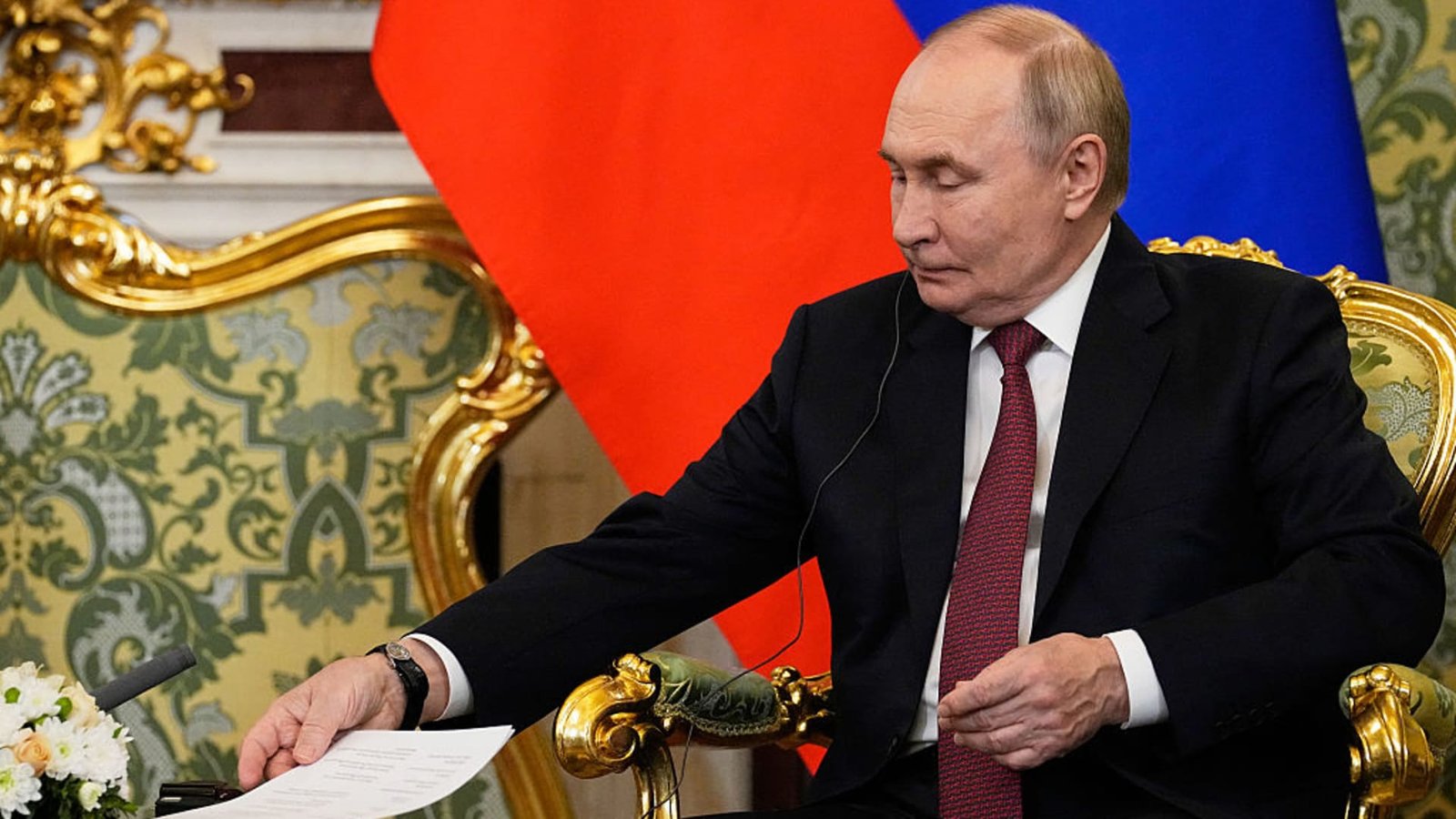









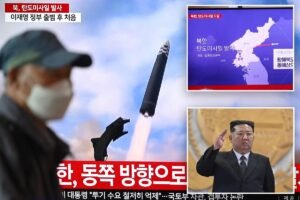

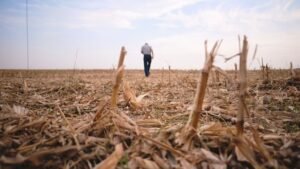
Post Comment